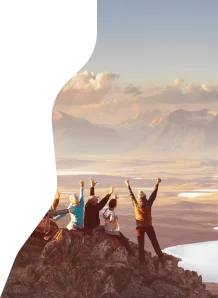On The Water's Edge: Cambodia's Ethnic Vietnamese Floating Village

A series of floating villages dot the huge expanse of water that makes up Cambodia’s Tonle Sap Lake. Here, the communities – predominantly ethnic Vietnamese – live out their lives on the water.
However, their livelihoods and future remain at threat, thanks to a series of issues. Take a look at how these communities are living on the water’s edge at one village, Kampong Phluk.
Village life
Welcome to Kampong Phluk, a community that heavily relies on the Tonle Sap’s waters for survival. As one of many floating villages that dot the edge of the huge lake, Kampong Phluk, which sits close to Siem Reap and is home to about 5,000 residents, is one of many floating villages that are turning to tourism to make ends meet.




Slender wooden boats are the only way for the villagers to get around, sailing from their homes that sit on the water, to floating schools, temples, shops and community halls.


Throughout dry season, residents return back to earth and live out their lives on ground level. During this time, families huddle in the shaded space beneath their homes to prepare meals, women gossip among themselves as they fix fishing nets or prepare mats of salted fish to dry under the sun, and children cycle through the streets shrieking with excitement as they go or play games in front of their homes.






Tonle Sap Lake
While life is seemingly simple at first glance, survival is tough for these communities who rely on the expanse of water daily. Declared a UNESCO biosphere reserve in 1997, the Tonle Sap Lake is home to approximately 150 species of fish and yields about 300,000 tons of fish, making it one of the world’s most productive freshwater ecosystems.
According to NGO Conservation International, which carries out work to improve the lives of these communities, the Tonle Sap and Cambodia’s inland fisheries account for more than two-thirds of Cambodia’s protein consumption, and are worth an estimated $2 billion annually.


However, fish populations are drastically dipping due to over-fishing and environmental issues, such as the slashing of mangroves that protect small fish, climate change and threats posed by the construction of a series of dams along the Mekong River, which merges with the Tonle Sap in Phnom Penh. In 2016, Global Nature Fund announced the Tonle Sap is the “most threatened” lake in the world.
Fish provide the country’s diet with the main source of protein, and it is Cambodians’ appetite for the species that in effect feeds the floating villages’ fishing-based economy. But with depleted fish stocks, this is having a serious impact on lives.




Tourism trend
Kampong Pluk and other floating communities in the area, including Kampong Khleang and Chong Kneas, are benefitting from the rising number of tourists that are steadily flocking to the sites. Many now drive the boats that take tourists through the villages and onto the lake, or run small floating restaurants to feed the crowds.


Some families have even opened up their homes to guests. For example, at Kampong Luong there are a handful of basic homestays with local families that can be booked on arrival at the boat landing.
While life remains tough for this pocket of people, hopes are high that eco-tourism has thrown them a lifeline to diversify and thrive. As with any eco-tourism trip, visitors are urged to remain respectful during their stay.






KEEN TO EXPLORE THE WORLD?
Connect with like-minded people on our premium trips curated by local insiders and with care for the world
Since you are here, we would like to share our vision for the future of travel - and the direction Culture Trip is moving in.
Culture Trip launched in 2011 with a simple yet passionate mission: to inspire people to go beyond their boundaries and experience what makes a place, its people and its culture special and meaningful — and this is still in our DNA today. We are proud that, for more than a decade, millions like you have trusted our award-winning recommendations by people who deeply understand what makes certain places and communities so special.
Increasingly we believe the world needs more meaningful, real-life connections between curious travellers keen to explore the world in a more responsible way. That is why we have intensively curated a collection of premium small-group trips as an invitation to meet and connect with new, like-minded people for once-in-a-lifetime experiences in three categories: Culture Trips, Rail Trips and Private Trips. Our Trips are suitable for both solo travelers, couples and friends who want to explore the world together.
Culture Trips are deeply immersive 5 to 16 days itineraries, that combine authentic local experiences, exciting activities and 4-5* accommodation to look forward to at the end of each day. Our Rail Trips are our most planet-friendly itineraries that invite you to take the scenic route, relax whilst getting under the skin of a destination. Our Private Trips are fully tailored itineraries, curated by our Travel Experts specifically for you, your friends or your family.
We know that many of you worry about the environmental impact of travel and are looking for ways of expanding horizons in ways that do minimal harm - and may even bring benefits. We are committed to go as far as possible in curating our trips with care for the planet. That is why all of our trips are flightless in destination, fully carbon offset - and we have ambitious plans to be net zero in the very near future.














